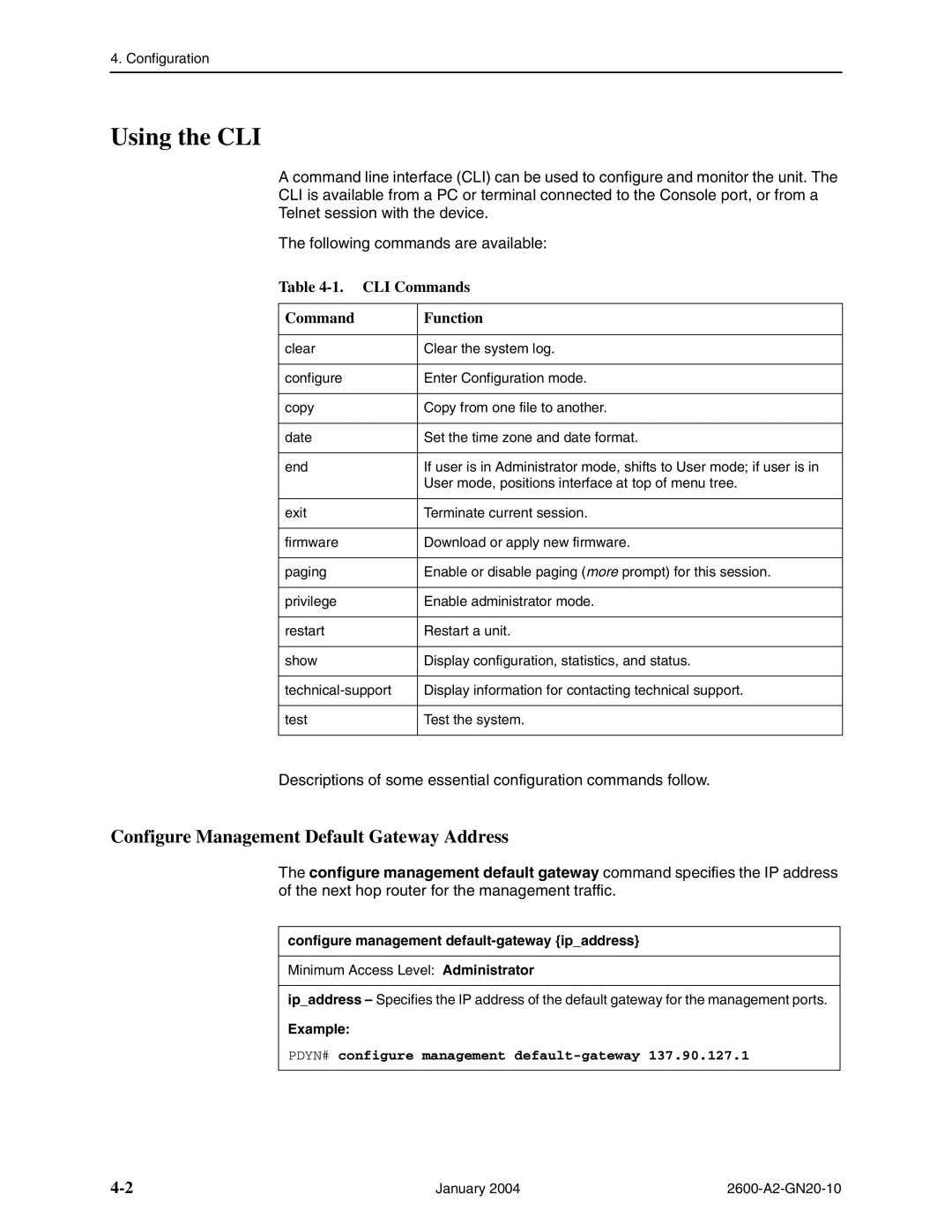
4. Configuration
Using the CLI
A command line interface (CLI) can be used to configure and monitor the unit. The CLI is available from a PC or terminal connected to the Console port, or from a Telnet session with the device.
The following commands are available:
Table 4-1. CLI Commands
Command | Function |
|
|
clear | Clear the system log. |
|
|
configure | Enter Configuration mode. |
|
|
copy | Copy from one file to another. |
|
|
date | Set the time zone and date format. |
|
|
end | If user is in Administrator mode, shifts to User mode; if user is in |
| User mode, positions interface at top of menu tree. |
|
|
exit | Terminate current session. |
|
|
firmware | Download or apply new firmware. |
|
|
paging | Enable or disable paging (more prompt) for this session. |
|
|
privilege | Enable administrator mode. |
|
|
restart | Restart a unit. |
|
|
show | Display configuration, statistics, and status. |
|
|
Display information for contacting technical support. | |
|
|
test | Test the system. |
|
|
Descriptions of some essential configuration commands follow.
Configure Management Default Gateway Address
The configure management default gateway command specifies the IP address of the next hop router for the management traffic.
configure management default-gateway {ip_address}
Minimum Access Level: Administrator
ip_address – Specifies the IP address of the default gateway for the management ports.
Example:
PDYN# configure management
January 2004 |
